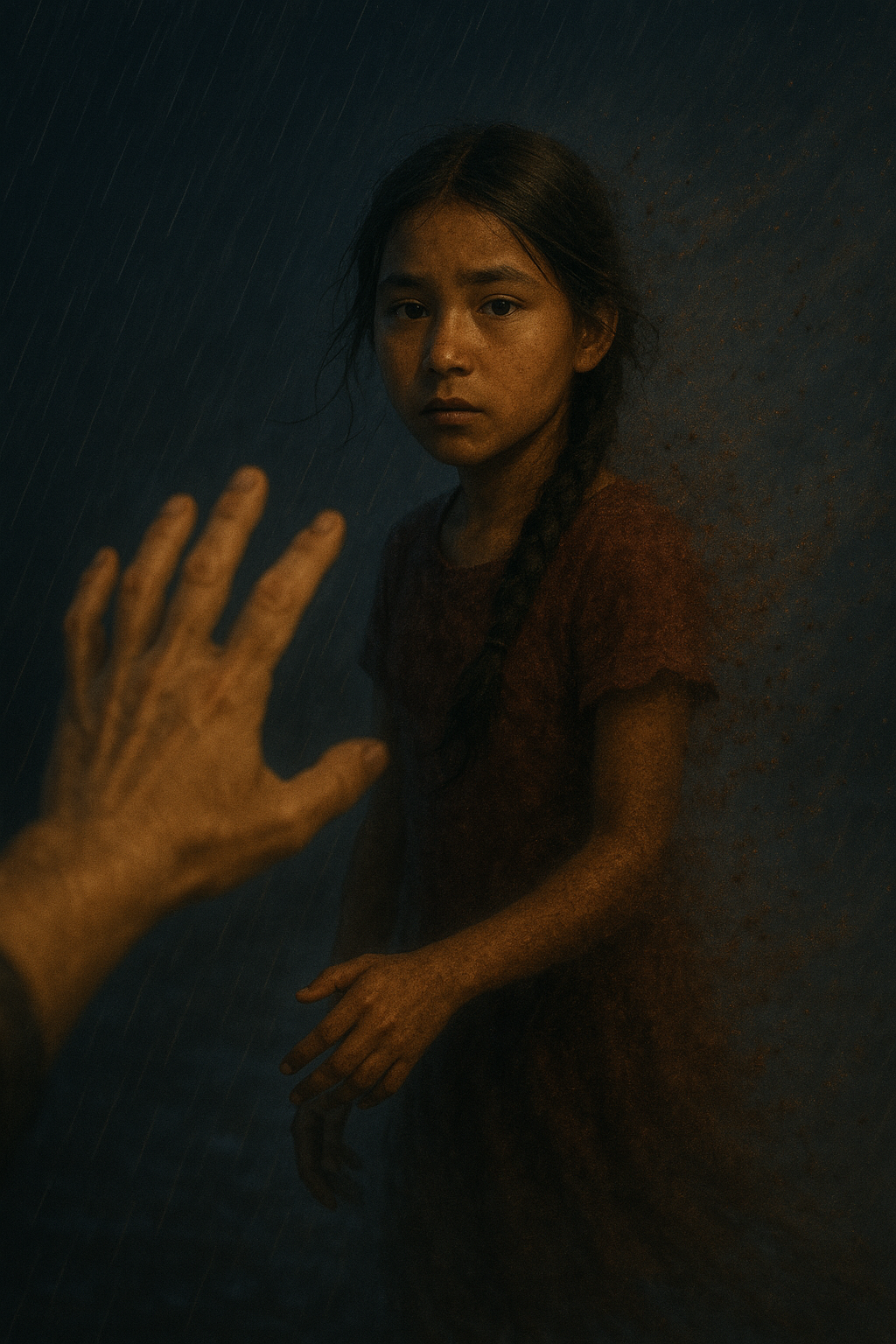The Invisible War -{1}- The Divide Between Us and Them
This isn’t about a few stolen girls. It’s about a broken system, a silent crisis, and the lie we’ve all been sold.

“They’re not at higher risk because they’re weaker. They’re at higher risk because they’re invisible.”
We’ve been trained to look for danger near the light.
We keep our eyes on the polished, suburban girl in the parking lot. The blonde-haired, blue-eyed daughter we’ve seen in movies and missing posters. And in doing so, we miss the shadows.
The kids who don’t make the news. The ones from foster care, from poverty, from homes that hurt them. The kids whose names you never hear, because the world wasn’t watching.
They vanish quietly. And when they do, the silence is louder than any headline.
The Invisible War -{1}- The Divide Between Us and Them The Divide Between Us and Them
This isn’t about a few stolen girls. It’s about a broken system, a silent crisis, and the lie we’ve all been sold.

“They’re not at higher risk because they’re weaker. They’re at higher risk because they’re invisible.”
We’ve been trained to look for danger near the light.
We keep our eyes on the polished, suburban girl in the parking lot. The blonde-haired, blue-eyed daughter we’ve seen in movies and missing posters. And in doing so, we miss the shadows.
The kids who don’t make the news. The ones from foster care, from poverty, from homes that hurt them. The kids whose names you never hear, because the world wasn’t watching.
They vanish quietly. And when they do, the silence is louder than any headline.
This series is not about assigning blame. It’s about exposing blind spots. Because until we can see the patterns that make some children more vulnerable than others, we’ll keep failing the ones who need us most.
The divide we’re talking about isn’t just racial. It’s systemic. It’s cultural. It’s emotional. And it’s reinforced by decades of bias, not always intentional, but deeply rooted.
When a white child disappears, it often becomes national news. Alerts go out. Social media lights up. Reporters show up at the family’s door.
When a Black child disappears, or a Native teen runs from a foster home, the system hesitates. Sometimes the police report isn’t even filed right away. Sometimes no Amber Alert is sent. Sometimes the child is labeled a runaway before anyone really asks why.
Why?
Because we’ve been conditioned to see certain stories as tragedies and others as choices.
The data makes this harder to confront, because often, it doesn’t exist. There is no consistent national database for missing Indigenous children. Many minority children are misclassified in law enforcement records, listed under the wrong race or marked "other." When these children return (and many do), their families aren’t always required to report it, which means they remain "missing" on paper, long after they’ve come home.
That distorts the problem. And it hides the real crisis.
Because trafficking doesn’t happen in a vacuum. It preys on instability, on broken trust, on invisibility. Kids who don’t get counted don’t get protected. And kids who aren't protected, get taken.
This isn’t about saying one group suffers more than another. It’s about facing the fact that some groups are watched more closely. And when you're not being watched, no one's coming when you're gone.
Air is invisible too.
But without it, we die.
It’s the same with the children we don’t see.
When we ignore the ones at risk, when we focus only on the stories that fit a headline, we let the invisible slip away.
And when they disappear, we don’t just lose them.
We lose our humanity.
“Without seeing those who need to be seen, they disappear... and only we are left to blame.”
If You Need Help, Now or Ever, Start Here
To Report a Missing Child or Suspected Exploitation:
- NCMEC 24/7 Hotline: 1-800-THE-LOST (1-800-843-5678)
- Online Tip Submission: report.cybertip.org
- Search Active Cases or File a Report: missingkids.org
If You Suspect Human Trafficking:
- National Human Trafficking Hotline: 1-888-373-7888
- Text “HELP” or “INFO” to: 233733
- Polaris Project: polarisproject.org
- Truckers Against Trafficking: truckersagainsttrafficking.org
Search & Support Platforms:
- NCMEC Search Portal: missingkids.org
- The Doe Network: doenetwork.org
This isn’t just about “those people” or “those communities.” Trafficking and exploitation affect us all, directly or indirectly. If you’re worried about someone, say something. If you’re unsure, ask for help. And if you’re afraid, know this: you are not alone.